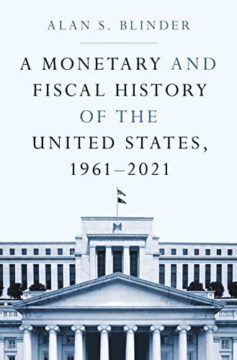 Martijn Konings in Sidecar:
Martijn Konings in Sidecar:
The award of the Nobel Prize in Economic Sciences to Ben Bernanke last month unleashed a wave of indignation among those who view the former chair of the Federal Reserve as the epitome of unoriginal establishment thinking. Bernanke received the prize for work demonstrating that bank runs were possible and that they could impact real economic activity. Both of those things had been perfectly obvious since at least the 1930s. But the Keynesian models that the economics profession built during the post-war era were unable to account for such events, having no real explanation for the volatile dynamics of debt and finance.
This aporia became more obvious when the era of ‘fiscal dominance’ came to an end and financial instability made a comeback from the second half of the 1960s, challenging the Keynesian paradigm and lending credibility to rival strands of thought. Rational expectations theorists underscored the inherent futility of government attempts to interfere with the inner workings of the market, while Milton Friedman’s monetarism fostered the notion that Keynesian inflationism was responsible for the corruption of America’s monetary standard.
Bernanke and other New Keynesians didn’t buy the idea that the problems of the present could be solved by returning to a pure free market. Yet the shallowness of their take on the problem of capitalism’s instability was evident in the subsequent evolution of Bernanke’s work into a framework for inflation targeting and monetary fine-tuning that looked with suspicion on any attempts to manage stock markets or asset prices.
More here.
